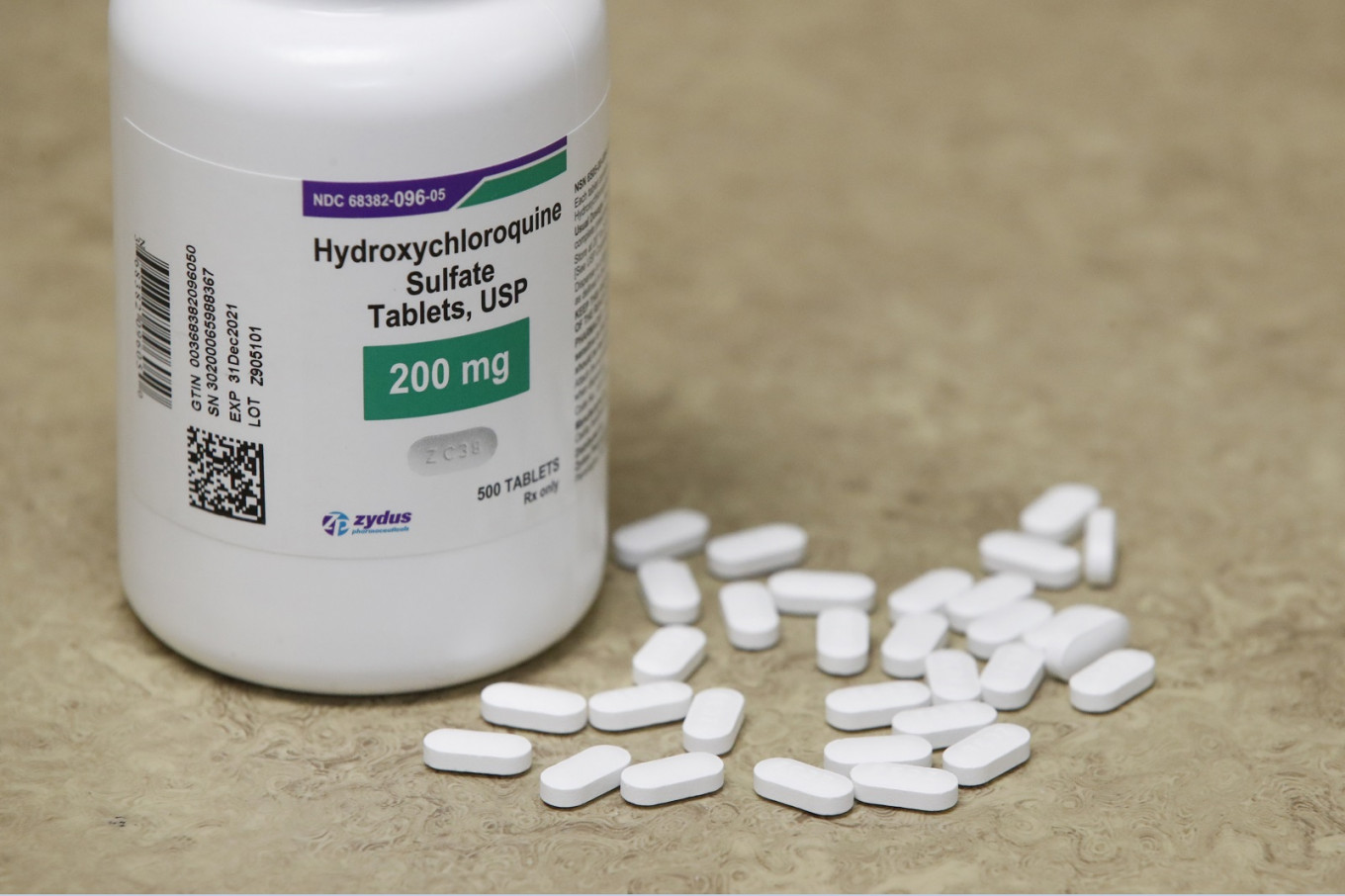Popular Reads
Top Results
Can't find what you're looking for?
View all search resultsPopular Reads
Top Results
Can't find what you're looking for?
View all search resultsClinical trial of Airlangga University's 'first COVID-19 cure' not yet valid: Drug agency
According to the agency, the clinical trials had not fulfilled the BPOM’s protocols in randomizing the test subjects, including symptom severity variations.
Change text size
Gift Premium Articles
to Anyone
T
he Food and Drug Monitoring Agency (BPOM) has said potential COVID-19 remedies being developed by Airlangga University in Surabaya, East Java, require additional clinical trials.
BPOM head Penny Kusumawati Lukito said that upon inspecting the clinical trial of the drug -- developed in collaboration with the Indonesian Army and the State Intelligence Agency (BIN) -- on July 28, the agency found several critical findings that affected the test’s validity.
According to the agency, the clinical trials had not fulfilled the BPOM’s protocols in randomizing the test subjects, including symptom severity variations.
“The research needs to be conducted at random to better represent the Indonesian population,” Penny said Wednesday.
The tested drug was also administered to COVID-19 asymptomatic patients, whereas the BPOM’s protocol stated that tested drugs should be given to patients with mild, moderate and severe symptoms.
Penny added that the trial showed no significant results, with the drug’s effects being similar to existing remedies used to treat COVID-19 patients.
The BPOM also called for the researchers to note possible side effects in future tests, given that the drug contained combinations of a number of potent medications.
Read also: 'It's for humanity': Indonesians step up to volunteer in vaccine trials
Airlangga University rector M. Nasih previously touted the potential drug in development as "the first COVID-19 cure" in the world. It contained combinations of existing medicines, namely lopinavir/ritonavir and azithromycin, lopinavir/ritonavir and doxycycline and hydroxychloroquine and azithromycin.
Health experts, however, urged the public not to get their hopes up, as the three combinations had been included on the list of potential COVID-19 remedies undergoing clinical trials initiated by the World Health Organization (WHO).
While the research team had not responded to the BPOM’s report, Penny said Army chief of staff Gen. Andika Perkasa had acknowledged the agency's findings as he supported efforts to continue clinical trials and ensure the drugs' efficacy.
Separately, BIN’s deputy head of communication and information, Wawan Hari Purwanto, said the research and development team was committed to following up on the BPOM's recommendation.
“We have yet to convey any new development because we need time to make the required corrections,” Wawan said on Wednesday. “We are always in touch [with the BPOM] because we cannot proceed to the next stages if we do not fulfill their requirements.”
The research team hoped to finish the drug as soon as possible in accordance with existing protocols.
Penny added that it was common for drug research to receive corrections from the BPOM before it passed and received the distribution license.










